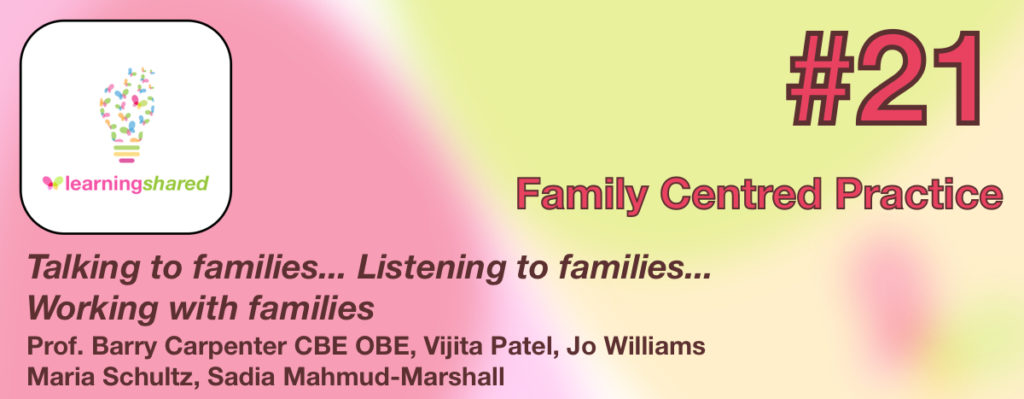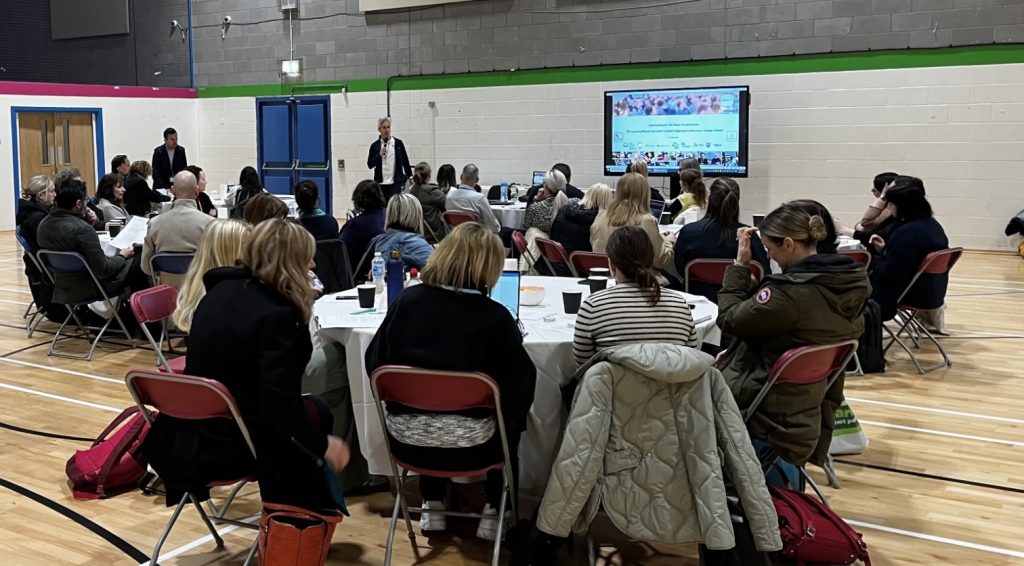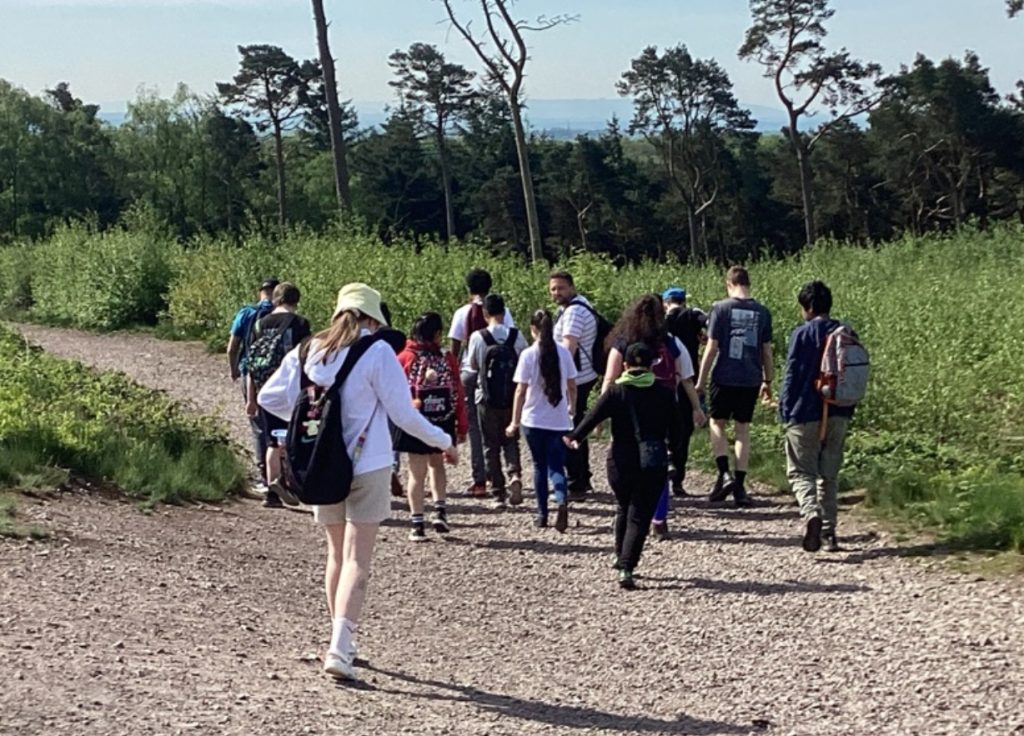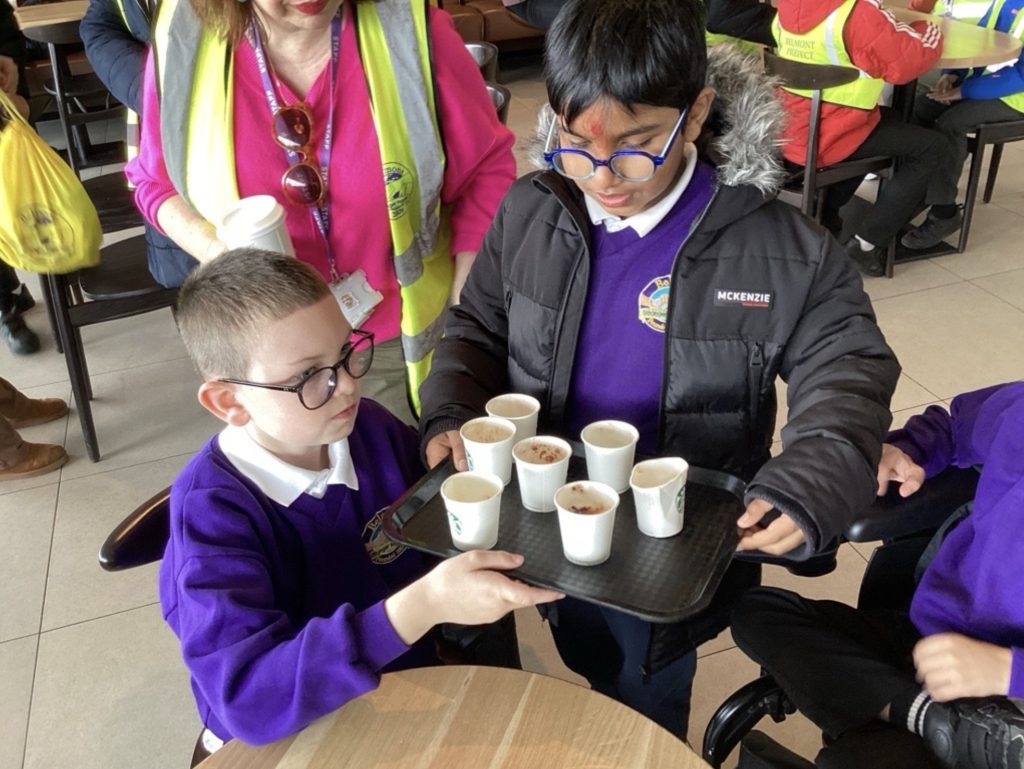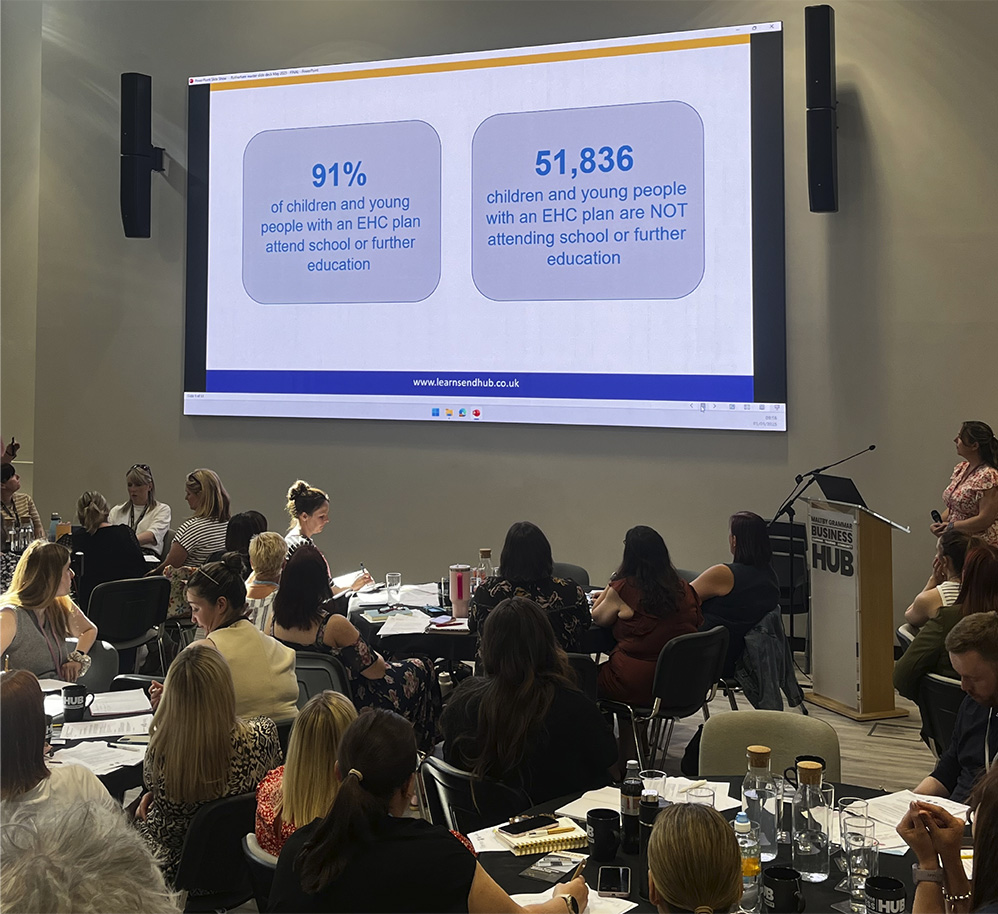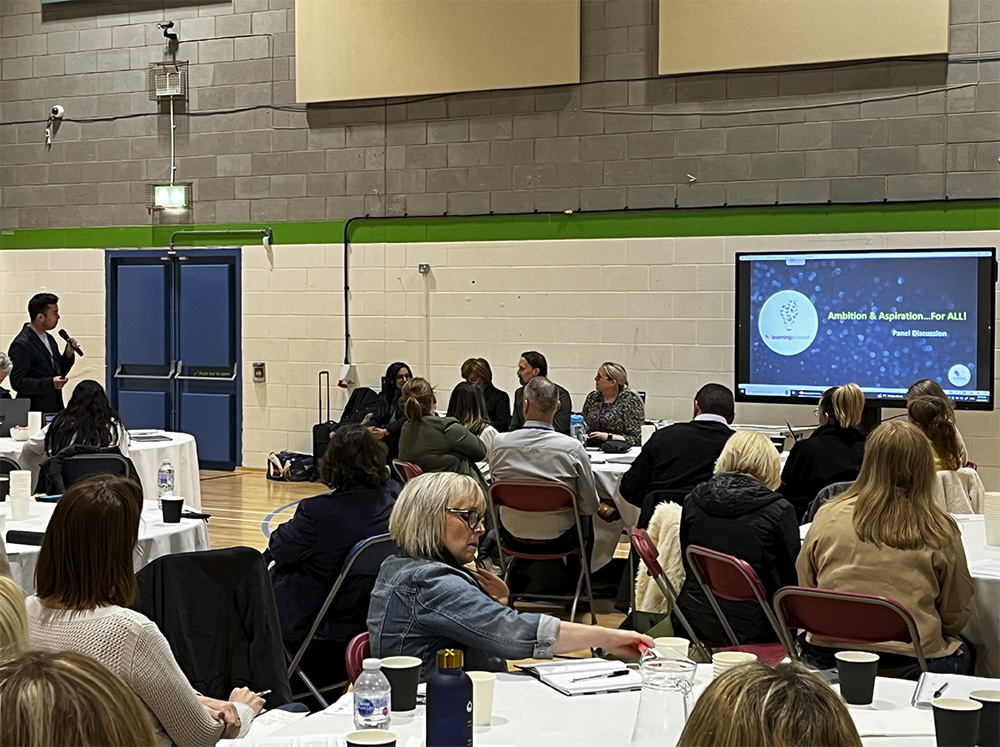In this episode hosted by Professor Barry Carpenter, we bring together a panel of school leaders and parents to discuss and explore how schools can work with families of children and young people with SEND to create a genuine bridge for family centred practice.
The panel includes:
- Vijita Patel (Principal, Swiss Cottage School Development & Research Centre)
- Jo Williams (Deputy Headteacher, Dee Banks School)
- Maria Schultz (Parent; Co-opted Governor at Swiss Cottage School DRC; co-chair of Camden Special Parents Forum & Parent advocate with KIDS Charity)
- Sadia Mahmud-Marshall (Parent; Co-opted Governor at Swiss Cottage School DRC & Project Lead on policy for NGOs on child protection and reduction in child slavery)
The episode exalts schools to shift the focus from partnership with parents to partnership with families; to embrace a more holistic and inclusive approach which values the contributions of all family members involved in a child’s life.
At its loftiest this is a paradigm shift to more Family centred practice; in its practical reality it is about adjusting your school newsletter to read ‘Dear families… ’, instead of ‘Dear parents…’.
In 21st-century society, when so much childcare is delivered by family members other than parents, do we truly value their contribution? Does it matter if the home – school liaison diary is completed by a grandparent? Where is the “Sib-Shop” workshop event in the school calendar to enable siblings to come together for fun activities whilst bonding with other siblings whose life journey is also as a brother/ sister to a child with special educational needs/ disabilities?
Such approaches will enrich the practice of our schools, and the lives of our families, as the speakers in this podcast powerfully illustrate.
Here’s where you can find LearningShared Episode 21 on YouTube.
Parents’ perspectives, aspirations and experiences…
Special thanks to Maria, Sadia, Alex, Amaya and both families for sharing in the video and thank you to the team at Swiss Cottage School DRC for creating and sharing this video with us.
EfL Networking & Development Meeting on Family Centred Practice (30th April 2021):
On 30th April 2021, we held a meeting for the EfL SEND Community that brought together over 100 schools to look at the topic of Family Centred Practice. In addition to the panellists (above) in episode 21 of the podcast, the meeting also heard from Lianne Buchanan at Fox Wood School and Ashleigh Fearon at Dee Banks School.
The aims of the meeting were to:
- Discuss and define the importance of family when there is a child with a disability
- Look at how to build capacity within families
- Discuss family empowerment and how we can develop confident champions for their child.
- Explore how EfL can support these approaches and help to transform the working relationship between school, the multi agency team and families
The panellists and presenters shared their perspectives, practice and experiences.
Here is a recording of the meeting including presentations from Barry Carpenter and all of the panellists. Copies of the presentations, as well as a useful list of ‘Top Tips’ and advice from Lianne Buchanan and the team at Fox Wood school are below…
Presentations from the meeting (30th April 2021) & ‘Top Tips’ guide from Fox Wood School
Below are presentations from the meeting. Special thanks again to Lianne Buchanan for producing and sharing her suggested tips and advice for approaching parent, carer and family engagement using EfL:
EfL Networking & Development Meeting: Family Centred Practice – Dee Banks School (Presentation)
EfL Networking & Development Meeting: Family Centred Practice – Fox Wood School (Presentation)
Top tips for family engagement with Evidence for Learning – Fox Wood School (Word Doc)
Further reading…
You may find the following articles and papers about Family Centred Practice useful reading on the topic:
Nasen article about “On family” by Prof Barry Carpenter (PDF)
‘Fathers & Disability’ article – Barry Carpenter & Christine Towers (PDF)
More info about Evidence for Learning:
About Barry Carpenter CBE OBE PhD FCCT:
Barry Carpenter holds the UK’s first Professorship in Mental Health in Education, at Oxford Brookes University. He is Honorary Professor at universities in the Ireland, Germany and Australia. He has been a Fellow of the University of Oxford.
He has been awarded an OBE and CBE by the Queen for services to children with Special Needs. In 2017 he was entered into “Who’s Who” in acknowledgement of his national and international contribution to the field of Special Education.
In a career spanning more than 40 years, Barry has held the leadership positions of Headteacher, Principal, Academic Director, Chief Executive, Inspector of Schools and Director of the Centre for Special Education at Westminster College, Oxford. In 2009, he was appointed by the Secretary of State for Education as Director of the Children with Complex Learning Difficulties and Disabilities Research Project. In that role Barry led an important and valuable piece of research on the use of Engagement as a pedagogy. This work become the foundation for Department for Education’s new guidance for assessment (DfE, 2019). Since completing that research, Barry has overseen the development of a national project developing online ‘Training materials for teachers of children with severe, profound and complex learning disabilities” (www.complexneeds.org.uk).
He is the author of over 150 articles and many texts on a range of learning disability/special needs topics. In the last 12 months, his work has been translated into German, French, Dutch and Russian. His most recent book publications (with Carolyn Blackburn and Jo Egerton) focus upon Fetal Alcohol Spectrum Disorders (FASD). Most recently he co-authored “Engaging Learners with Complex Needs” (Routledge).
Barry lectures nationally and internationally. In recent years this has included China, Japan, Abu Dhabi, USA, and Germany. In 2018 he will be giving lectures in Australia and New Zealand. He is the co-founder of the National Forum for Neuroscience in Special Education. For the Mental Health Foundation, he Chaired the National Inquiry into the Mental Health of Young People with Learning Disabilities. He is currently Chairing a working group looking at the needs of Girls on the Autism Spectrum, which is the focus of his latest book.
Barry has 3 children – one a School Principal, one a Senior Occupational Therapist and a daughter with Down’s Syndrome, who now has a home of her own, published her first book in 2017, and is on an Apprenticeship as a Teaching Assistant.
For more information:
Professor Barry Carpenter’s website: https://barrycarpentereducation.com
Join the conversation:
Facebook: EfL SEND Community Group
Join us at:
https://www.facebook.com/groups/eflSENDCommunity/
or search for “eflSENDCommunity” in Facebook.
The purpose of the group is to provide a safe, closed space to seek out and share ideas, experience and resources that can help with any and all aspects of SEND provision. It’s also a community for practitioners and schools that use Evidence for Learning and Insights for Learning to share ideas, resources and support each other in using these apps. This is a peer-moderated and supported group.
Facebook Group: Recovery Curriculum
We’ve set up a private facebook group specifically for The Recovery Curriculum at:
https://www.facebook.com/groups/recoverycurriculum
or search for “recoverycurriculum” in Facebook.
Linkedin Group: The Recovery Curriculum
The group is called “A Recovery Curriculum for children & schools post-pandemic” and you can find it at:
